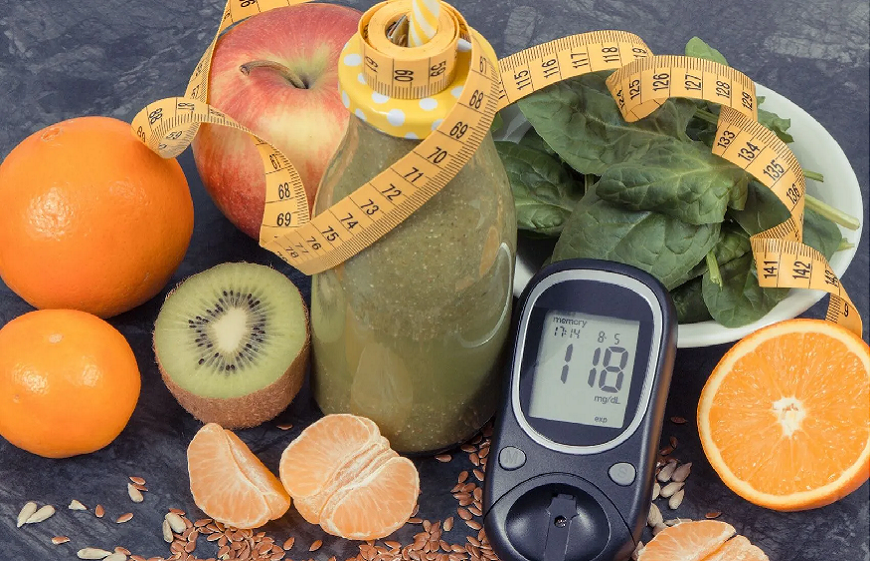Learn how to be an exceptional nurse
If you are considering nursing as a second career, then there are specific traits you need to have to become the best nurse you can. There are also many ways to further your education, skills and experience, including online courses, seminars and conferences. Becoming a nurse is a process of learning that never stops because there are always discoveries and innovations in healthcare that you need to be aware of. If you believe nursing is more than just practical knowledge regarding how to take care of patients, but instead involves compassion, respect and listening, then you are well on your way to becoming the best nurse possible. The following list of traits and skills should help you with your journey through nursing.
Traits of a great nurse include:
Compassion
Compassion and empathy are not just feeling bad for your patients; it is the ability to put yourself in their shoes and develop a plan of action based on what you observe. Nurses are the frontline of the healthcare system, and they are the ones who see patients and their families the most often. This usually means seeing a patient on their worst day with emotions running high from pain or other symptoms. A good nurse understands that the patient might be lashing out because of pain or fear and does not take it personally but treats the patient as if they were a family member, with patience and kindness.
Due to a nursing shortage in the US, most nurses are spread too thin in their individual departments and they can’t spend as much time with each patient as needed. It is difficult to be as compassionate as you want to be when you only have a few minutes to administer medications, check vitals and perform other daily checks for each patient. It is important to follow these guidelines of compassion even when there is a time crunch and just spending an extra second or two to show you care can make all the difference. Some helpful tips for when compassion is needed but you may not be feeling anything but stressed and rushed include:
- Listen to the patient and take a breath before you answer. Nurses are good at their jobs and have seen everything, so they probably know what the patient is going to say before they say it. What a patient wants is to feel that they are being heard and respected. Listening to what they are saying and then taking a beat to answer them shows that you are caring about their words just as much as what is wrong with them.
- Repeat what the patient is saying back to them to make sure you understand, and to show them that you are listening. Do this in a calm voice regardless of how emotional the patient is. When you respond with calmness to someone who is scared or angry, the whole tone of the conversation comes down in intensity and the patient will often apologize for their behavior.
- Have a support system for yourself if you feel overwhelmed. It is harder to feel compassion for someone if you don’t have it for yourself. Seek out that colleague or friend who will be there with a kind word and encouragement when you need it the most.
- Connect with patients on a personal level rather than only regarding their health. Talking to a patient about their family, pets and hobbies can help them take their mind off their troubles and help them feel a connection to you that is important to their recovery.
- Don’t beat yourself up if you act less than compassionate when you are having a bad day. Your patients are looking to you for guidance and support, so if you slip up, then you can apologize for your behavior, and they will be happy to forgive you.
Organization
If you are a nurse working in a hospital, then you know how important it is to be organized. Patient charts, medication schedules and vitals checks are just some of the daily tasks a nurse needs to perform in a timely manner. Having an organizational system that works for you is the key to being the best nurse you can be. If your system is good, then you may be asked to share it with others. Being organized at work can also help you maintain a work-life balance, as the more time you save staying on track of all the daily tasks that need to be done, the more often you can take that extra five or 10 minutes to stretch or take a walk and get some fresh air. A good organizational system can also ensure you get out of work at the time you should instead of spending an extra half-hour finishing up reports or performing other tasks that you didn’t have time to do in the regular workday. Being organized requires planning and discipline, but if you can put your system into action and follow it closely, you may find that life becomes a lot less hectic, and you will have more time to concentrate on issues such as career advancement and continued learning.
Critical thinking
Critical thinking in nursing is the ability to identify a problem and follow steps to resolve that issue. The more experience you have in your profession, the easier it is to think ahead to what problems may arise with a particular patient and put together a plan of action. Critical thinking features several steps including:
- Identifying what needs to be done. This could be solving a problem, achieving a goal or pinpointing an issue.
- Assessing the situation and reviewing what you know about it based on the available information.
- Exploring all options to achieve the result you want. Examining the who, what, where and why of achieving that result.
- Implementing the plan of action.
- Debriefing by reflecting on what went well and what needs improvement from this exercise. Was it a success or a failure and why?
Lifelong learner
If you are interested in nursing as a new student or a second career, then signing up with one of the accredited nursing schools online is a great place to begin. The online courses are designed for those who are looking to get started in the field of nursing as well as looking to transition into the field as a second career. If you are new to nursing and want to get the process started, online courses are the best and most flexible option for someone with a busy schedule.
Adaptable
Being adaptable as a nurse can mean being able to think quickly on your feet and change course at a moment’s notice. The health of a patient can often take a turn, and as a nurse, you need to be ready to spring into action because someone’s life depends on it. Adaptability means being able to accept new ideas and technologies that may become available. A nurse should have basic knowledge of alternative medicines to better help a patient who has been treated this way in the past, or know about certain religious sects that are strict regarding healthcare and how it is administered.
Effective communicator
Effective communication is more about listening than speaking and making sure your message is getting across effectively. When nurses communicate with their patients, they need to be open to what the person is saying and listen closely to provide the best care. Communicating with family members is a big part of a nurse’s job and you are usually the point of contact they speak with the most. It is important to listen to the family’s concerns openly and be honest with them about the diagnosis of their loved one and any additional support that may be needed when they are discharged. Communication is also key when dealing with colleagues and can help build strong relationships at work.
Communication skills also include knowing when you need help communicating with someone. You may need to instruct the family of a patient on what treatments and medication schedules need to be administered but they don’t speak the same language. Asking for help in the form of a translator would be required to make sure there are no misunderstandings.
Another important aspect of effective communication is becoming an advocate for your patient when you understand their needs and challenges. By listening closely to the information provided, a good nurse can relay that to the rest of the medical team, so they are aware of any changes in the patient’s prognosis.
Detail-oriented
Being detail-oriented is very important for a nurse, especially as you are dealing with people’s lives. The skill of being able to incorporate the small details of a patient’s care into the overall picture can mean the difference between a speedy recovery, or one that takes longer than it should. Being detail-oriented means that you are on top of the many tasks surrounding each of your patients and that you can see when something is not right and are able to fix it quickly and efficiently. Accuracy is another part of being detail-oriented and is very important when it comes to administering medication and checking vitals. Detail-oriented nurses do not guess or approximate the amount of medication, but check the exact dose needed and when.
Energetic
Nurses are usually on their feet all day and they need energy to last for at least a 12-hour shift. Eating foods that give you energy, as well getting enough sleep and exercise can help you sustain your energy throughout the day. Performing some self-care such as taking small breaks throughout the day to stretch or getting fresh air is also important in keeping your energy up. When people are depending on you for their healthcare, there is no room for being tired or slowing down, so make sure you are doing what you need to for your own health.
Emotionally stable
A key element in nursing is being calm and emotionally stable when faced with challenging situations. Being emotionally stable doesn’t mean being devoid of all emotion, but it is still being able to maintain an objective view of patients who may be in bad shape. Being a nurse, you will come across patients who die, are critically ill, have emotional problems or other circumstances that can elicit a strong emotional response. A great nurse can keep those emotions in check and not let them distract from the job at hand. When someone is angry or upset, it is very difficult for them to make rational decisions or concentrate on important details. This skill takes some practice and there are things that you can do to keep yourself on an even keel even during the most challenging days. Meditation is a great way to take a few minutes to center yourself so you can face whatever issues come up during the day with calmness and objectivity. Practicing mindfulness is a great way to push away any of those extraneous pressures and concentrate on the moment at hand. Being emotionally stable doesn’t mean being unfeeling, it just means that you are able to face emotional situations with a clinical view rather than letting them affect you personally.
Responsible
A great nurse feels responsible for all their patients and their work environment. Nursing is viewed as one of the most responsible and honest vocations, with the highest integrity. Being responsible means that if you see a small detail being overlooked that you address it immediately and if a mistake has been made, you must make sure to report it if it means a patient’s care is at risk. Being responsible is taking ownership of your domain and putting your ego aside for the sake of the patient and the healthcare team. Everyone makes mistakes, but it takes a special individual to stand tall and claim responsibility when that mistake is made.
Quick to react
There are few days when there isn’t an emergency happening when you are a nurse. Especially if you work in an emergency room. Nurses who are on the frontlines at hospitals need to react quickly to protect the patient, or those around them. You may be faced with a situation where the entire team needs to work on a patient quickly to save their life, and you can’t slow down to consider the options from all angles. Seasoned nurses are aware of just how quickly a situation can deteriorate when it comes to patient’s health, so it is good to watch how they react and what they do. This is something that will take practice and time, and the first time you need to think quickly on your feet you might panic a little, but don’t worry, it will get easier. Being able to react quickly and efficiently in medical emergencies comes with experience, so it is a good idea to help with as many of these patients as you can, so you gain experience quickly.
Treat everyone with respect
Your job is to provide the very best healthcare you can for all patients, regardless of who they are or what they look like. When you treat all patients with respect and understanding, you are providing the best care you can as a nurse and everyone around you will appreciate it. Treating everyone with respect also leads your colleagues and junior nurses by example, and you will be looked up to and valued for your respectful demeanor. Respect for your patients also means being truthful with them about their care and treatment. Your caring nature may not want to give them or their family the hard truth about their health, but the respectful thing to do is to be honest and open so they can move forward with all the necessary knowledge. Respect also applies to those of different nationalities who may not understand all the terminology or the language. These people have the right to understand what is going on, so you may want to get an interpreter if you can or a translator. You can even try Google translate if you have no other options. This shows that you respect the individual enough to try every method to get your point across, so they understand it.
Becoming a nurse as a second career comes with great challenges and many rewards. Going back to school at an advanced age can be scary and difficult, but there are online courses flexible enough to fit in with your learning style and the amount of free time you have. To be the best nurse possible, you need to master the practical skills, but you also need strong soft skills, such as compassion, empathy and critical thinking. The soft skills are what will set you apart from the rest and help you advance in your career in nursing. Acquiring and practicing the traits of an exceptional nurse will provide you with the tools you need to be the best nurse you can be.



